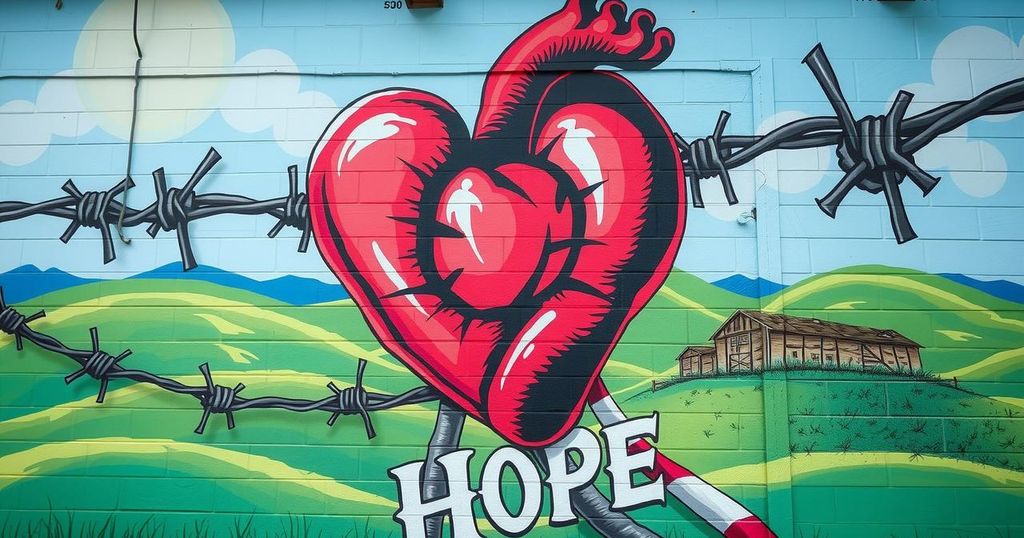Crime
ASIA, AURORA, BERNAL, CRIME, DENVER, DEPORTATION, DRUG TRAFFICKING, FBI, IMBURG, IMBURGIA, IMMIGRATION AND CUSTOMS ENFORCEMENT, JAPAN, JEFFERSON, JEFFERSON JOSÉ, JEFFERSON JOSE, JEFFERSON JOSÉ LAYA FREITES, JOSE LAYA FREITES, JOSEPH IMBURGIA, LAW ENFORCEMENT, LAY, LAYA FREITES, MONEY LAUNDERING, MONIQUE SHERMAN, NORTH AMERICA, TANG, TANGA BERNAL, TEXAS, TRUMP, U. S, U. S. IMMIGRATION AND CUSTOMS ENFORCEMENT, UNITED STATES, USA, USA TODAY
Fatima Khan
0 Comments
Venezuelan Migrants Deported to El Salvador: A Human Rights Crisis Linked to Tattoos
This article discusses the troubling experiences of Venezuelan migrants, Jefferson José Laya Freites and Franco José Caraballo, who were detained and deported based on allegations of gang affiliation due to tattoos. Federal authorities have faced criticism for their handling of these cases, with families arguing that many deportees have no criminal ties. The piece highlights the impact of recent immigration policies and the urgent need for reform to protect individual rights.
In Aurora, Colorado, an immigration court faced complications during a hearing for Venezuelan migrant Jefferson José Laya Freites, who was reported missing after being detained by ICE. His attorney informed the judge that Laya Freites might have been sent to a Salvadoran prison following a transit to Texas, amid a controversial $6 million detention deal signed during the Trump administration. The lack of information regarding his whereabouts troubles the judge, who demanded details from federal prosecutors. The widespread concern underscores a troubling pattern, with many detainees mysteriously disappearing into Salvadoran facilities without proper hearings.
Reports indicate that individuals like Laya Freites are becoming victims of unfair immigration practices, often due to tattoos that are misinterpreted as gang affiliations. Family members assert that many are rounded up without regard for their rights. Laya Freites’ wife confirmed he has never been part of a gang; they fled Venezuela seeking asylum and had previously received work authorizations. He was detained despite having legitimate status, highlighting systemic issues in enforcement.
Franco José Caraballo, another individual affected, complied with all immigration checks and was shocked when detained prior to a scheduled check-in. Despite having no criminal record, he was among many deportees sent to El Salvador due to supposed ties to the Tren de Aragua gang, based largely on disregarded tattoos. Caraballo’s case illustrates the dangers of misrepresentation, as many deportees are labeled gang affiliates simply for bodily art connected to personal milestones.
The Trump administration’s designation of Tren de Aragua as a terrorist organization raises significant concerns over civil liberties. Law enforcement data suggest a much smaller presence of the gang in the U.S. than implied by officials, with investigations showing that those deported often have minimal infractions or tattoos reflecting personal rather than criminal connections. Immigration rights advocates express skepticism over the gang narrative, arguing for the urgency of humanitarian concerns amidst widespread deportations.
Recent judicial proceedings have highlighted the refusal of officials to disclose vital information regarding deportations and the individuals involved. This secrecy has led to suspicions about the due process rights of those affected. Additionally, deportees have described their tattoos as personal symbols, not connections to gang affiliations, further complicating the narrative being presented by federal authorities.
Ultimately, the stories of Laya Freites and Caraballo, along with many similar cases, underscore a critical human rights dilemma. Families lament that individuals are unjustly punished and deported, putting them at risk of incarceration in countries where they have no criminal ties. Immigration policies are increasingly scrutinized for how they prioritize security over individual rights, calling for reform to ensure that justice is served.
This situation reveals a troubling trend of unfair immigration enforcement, where individuals like Jefferson José Laya Freites and Franco José Caraballo are subjected to harsh consequences based on misinterpreted tattoos and faulty claims of gang affiliation. The lack of transparent procedures and the abuse of national security claims hinder justice and due process for many seeking refuge. These stories emphasize the need for more humane immigration policies that uphold individual rights and recognize the complexities surrounding migration and asylum claims. Such practices are not only a challenge to the credibility of immigration enforcement but also illustrate a broader human rights issue that requires urgent attention from the legal system and advocacy groups alike.
Original Source: www.usatoday.com




Post Comment